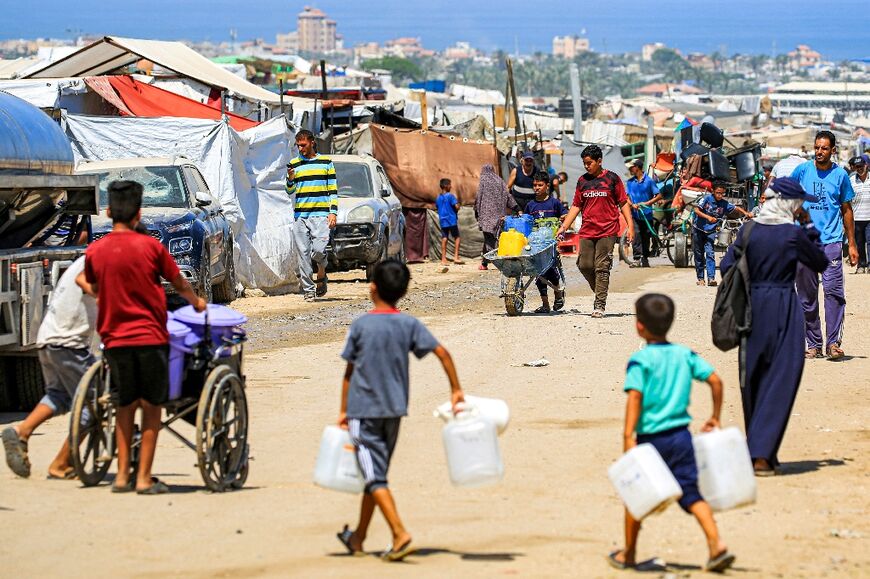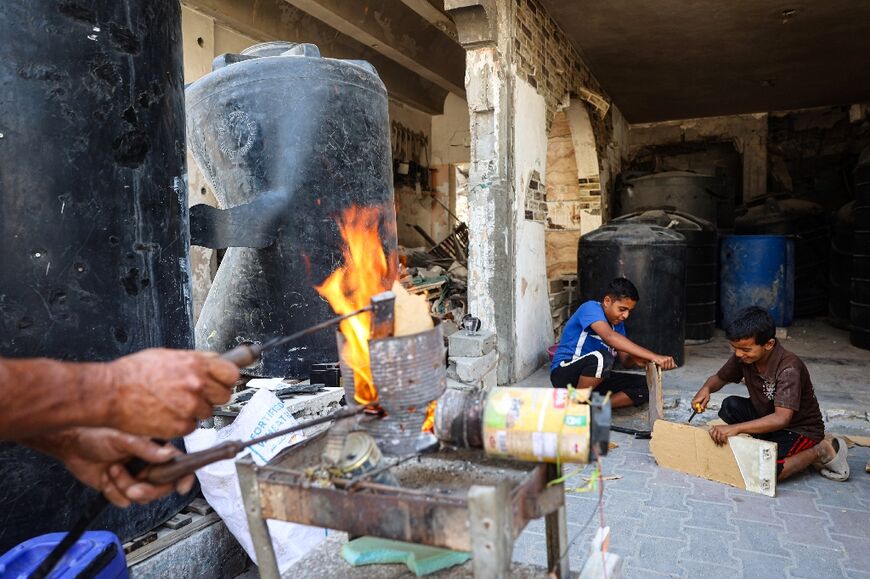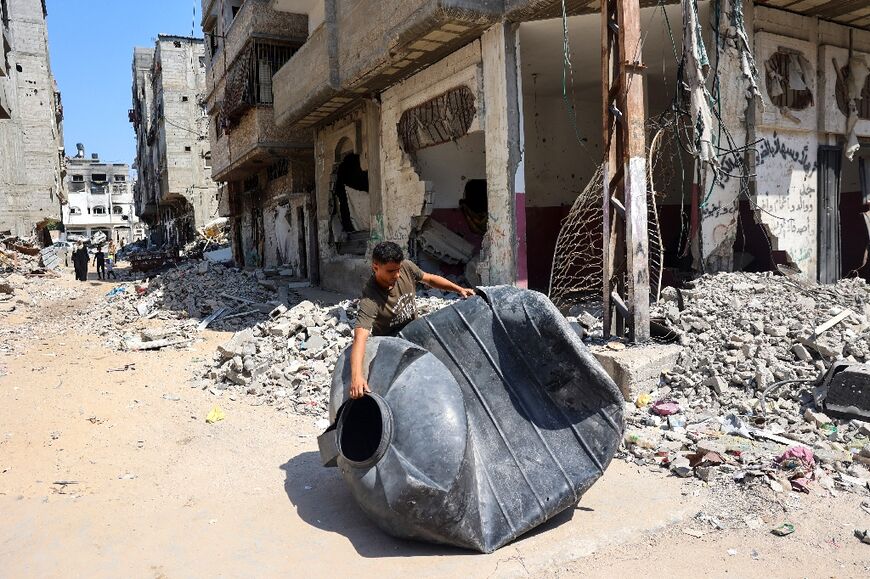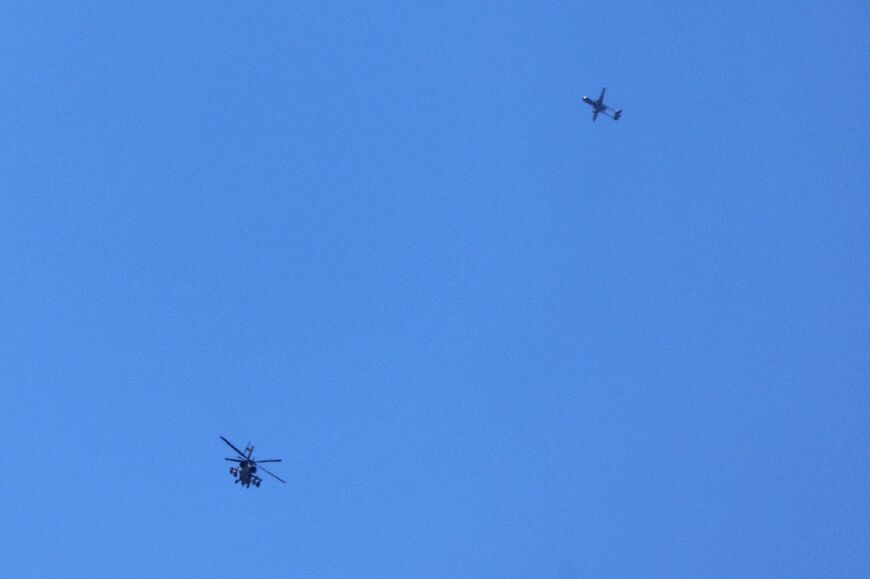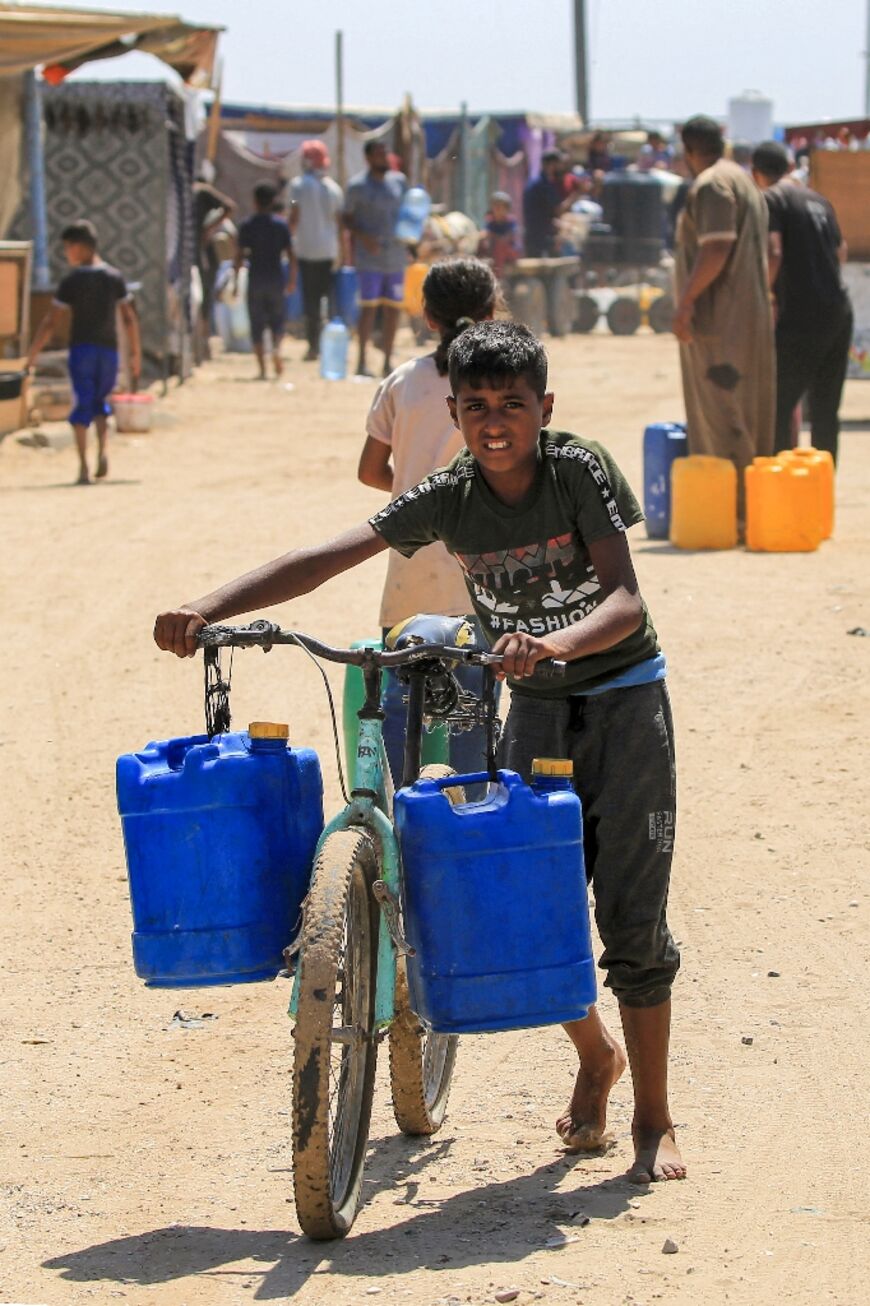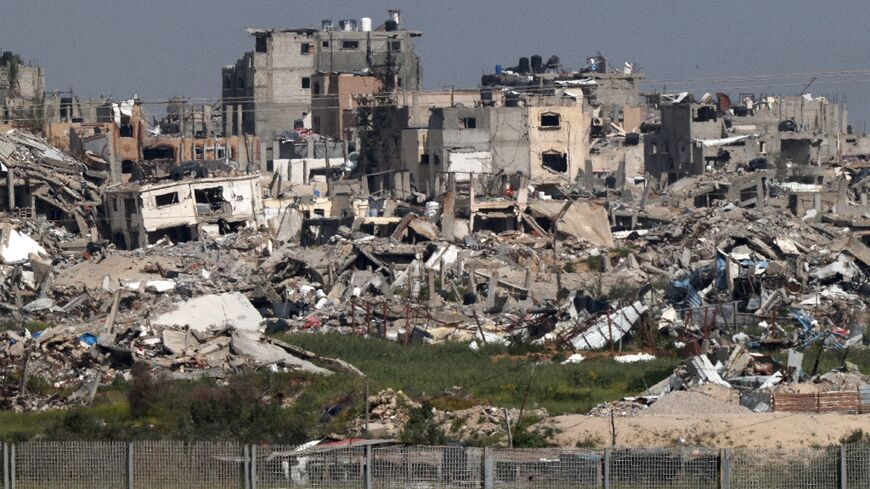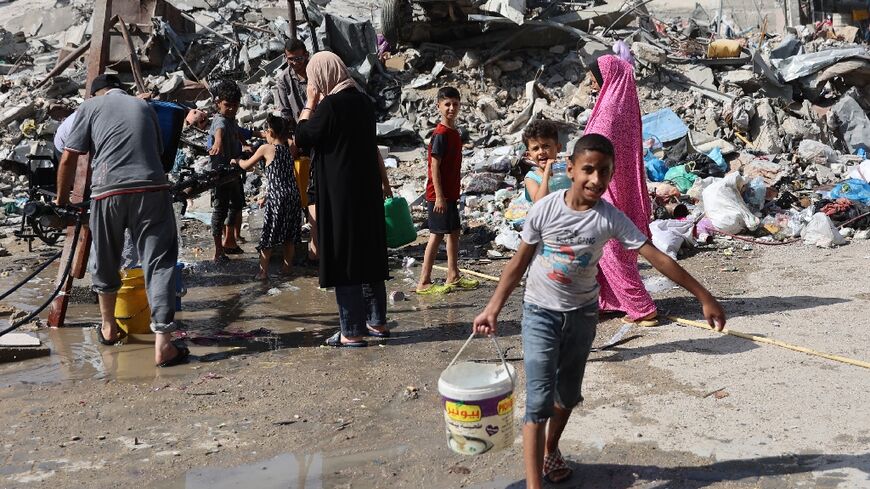Gaza workshop repairs water tanks hit by bullets, bombs

As the summer heat beats down on war-torn Gaza, Muhammad Bashir's skills are in high demand: he repairs rooftop water tanks that have been perforated by shrapnel and bullets.
Some of the leaky tanks in his workshop look like sieves.
"Before the war... we used to fix only one or two water tanks every month, but now we get dozens due to the occupation (Israeli forces) bombing of homes," he told AFP.
Tawfiq Ramadan, another repairman, said "there are no tanks available on the market, new or used ones. Since no one can do without water, people are bringing us the tanks to repair them."
Gaza's rooftops have long been studded with large plastic tanks that supply homes below with gravity-fed water and provide a valuable buffer for times when the mains are down.
Water trucks usually fill them up or residents pump up water from the public water system or domestic wells, said Omar Shatat, a water engineer in the Palestinian coastal territory.
Since Hamas's October 7 attack on southern Israel sparked the bloodiest ever Gaza war, relentless Israeli bombardment has devastated vast areas of the coastal territory.
"Most of the tanks we get are damaged by drone fire," said Bashir, who was working on a tank with hundreds of holes in it at his workshop in the central city of Deir al-Balah.
To fix the damage, Bashir uses a homemade gas blowtorch to melt repurposed resin, rubber or plastic and then applies the hot paste with a trowel to plug the leaks.
In an impressive display of craftmanship, the repairmen fixed a 300-litre tank that had been severed by an almost two metre (six foot) crack, the dried dark putty standing out like a long scar.
- Dire water shortage -
The war started with Hamas's October 7 attack on southern Israel, which resulted in the deaths of 1,195 people, mostly civilians, according to an AFP tally based on Israeli figures.
The militants also seized about 250 hostages, 116 of whom remain in Gaza although the army says 42 are dead.
Israel's retaliatory offensive has killed at least 37,718 people, also mostly civilians, according to data from the health ministry in Hamas-run Gaza.
Israel also imposed a punishing siege, and water has become scarce due to damage to municipal water reservoirs and seawater desalination plants, and an intermittent supply of bottled water.
Gazans struggled to access adequate safe water even before the war, and local underground water is often contaminated by saltwater intrusion, sewage and chemicals.
Since the war erupted, more than two thirds of Gaza's sanitation and water facilities have been destroyed or damaged, according to data cited by UN agencies.
This has fuelled public health threats, including dehydration and food contamination, and the spread of diarrhoea and other diseases, especially in crowded displacement camps.
Water tanks have become near impossible to purchase, and even jerrycans, buckets and other containers are scarce.
Ramadan and Bashir repair those too when they crack.
"The crisis has worsened now as summer has arrived," said Bashir. "People need water to drink and wash."


